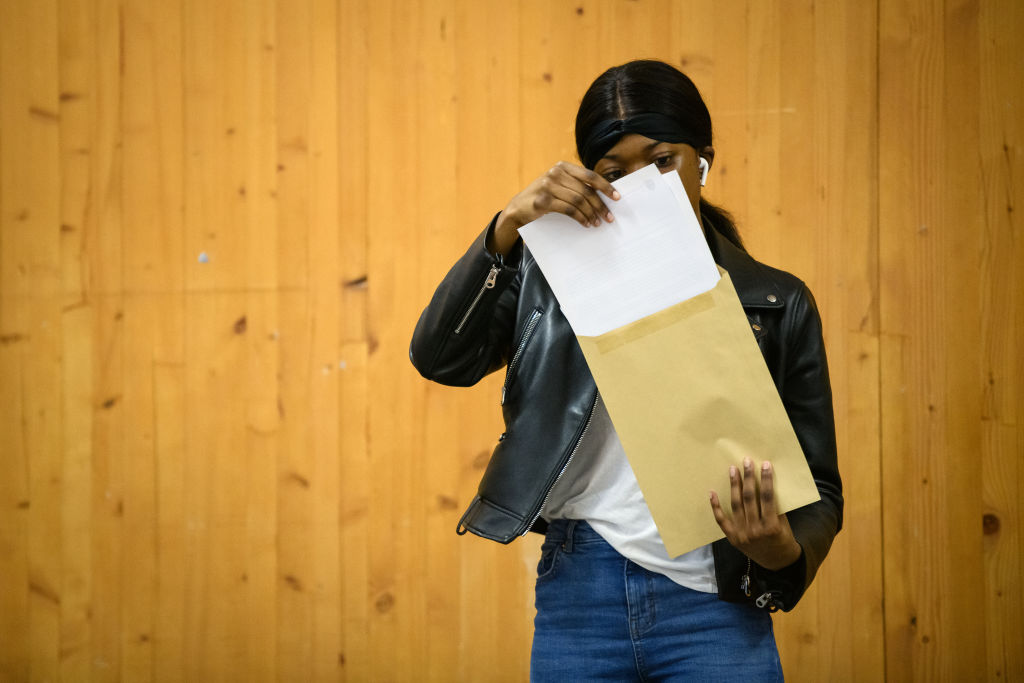With a B, an E and a U at A-Level, it came as no surprise that yesterday I was rejected by both my first and second choice universities. Had I sat the exams myself, then I would have been more understanding of the outcome: at least I would only have myself to blame. But those grades do not reflect my ability, nor were they predicted by my teacher. Instead, the BEU that greeted me on results day was based on what an algorithm thought I ought to achieve.
Last week, I wrote for Coffee House of my concern that students from disadvantaged backgrounds would be disproportionately impacted by the cancellation of exams and introduction of calculated grades, and I’m afraid I was right.I held offers from top Russell Group universities to study Law (Cardiff being my firm choice). But I never got a chance to sit my A-Levels and prove myself.
Any system that grants a ‘U’ grade to a student who did not even have the chance to sit the exam is not fit for purpose
After becoming homeless at 16, I found myself fighting for my education every step of the way. I retained my place at the grammar school that I had attended since I was 11, held down three minimum wage jobs, and sofa-surfed with friends and colleagues for the better part of two years. I never gave up, despite the late nights and early mornings, despite the constant fear of where my next meal would come from. I truly felt that I would be able to prove my worth against all odds in my A-level exams.
To have this opportunity torn away so close to the finish line is absolutely devastating. Only 8,173 estranged students – who, like myself, have no parental support or are supported by social services – are enrolled in university this academic year. Many of us have gone through our A Levels completely alone: revising during our breaks at work, applying for UCAS and receiving our offers without support or guidance on our personal statements. We don’t have a shoulder to cry on or someone to put the kettle on during a late-night study session. Who do we have now to help us fix our future prospects?
Students from disadvantaged backgrounds are, on average, two years of learning behind their more affluent peers by the end of secondary school. We are twice as likely to be predicted an E at A Level – a lesson I have now learnt the hard way – and are often negatively impacted by a lack of personal support and consideration of the basic struggles that hurt our ability to succeed.
We had ourselves, our school, and our futures; after this A Level results fiasco, it now feels as though we only have ourselves.
I understand that it was going to be impossible to please everyone in Covid-era A-levels, but we must not sweep this under the rug: any system that grants a ‘U’ grade to a student who did not even have the chance to sit the exam is not fit for purpose. Because, while this may just be another cohort of results to those on the outside, the grades received by many this A-Level results day will seem like a life sentence for young people in my position.
I will be appealing what grades I am able to, although my options are limited due to the restrictive nature of this year’s appeal process: schools must lodge appeals on behalf of students; I can’t do it alone. But even if I am successful, there will be other students like me who won’t overcome the odds.






Comments